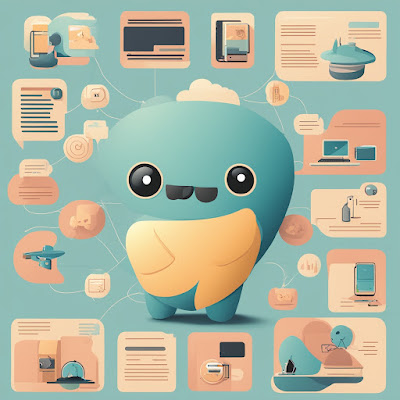In the ever-evolving landscape of artificial intelligence, few innovations have captured the imagination and practical application as profoundly as ChatGPT. Developed by OpenAI, ChatGPT represents a significant leap forward in natural language processing (NLP) technology, offering a versatile and accessible platform that is reshaping how we interact with AI.
Understanding ChatGPT
At its core, ChatGPT is a sophisticated language model built upon the Transformer architecture, a cutting-edge deep learning model optimized for handling sequential data such as text. What sets ChatGPT apart is its ability to generate human-like text based on the input it receives. This means users can engage with ChatGPT in a conversational manner, posing questions, seeking information, or even discussing complex topics.
Initially released in 2020, ChatGPT has undergone several iterations, with each version enhancing its capabilities in terms of language understanding, coherence, and contextual awareness. The latest versions leverage vast datasets and advanced training techniques to continually improve responsiveness and accuracy, making interactions with ChatGPT increasingly natural and intuitive.
Practical Uses of ChatGPT
1. Customer Support and Service:
Many businesses have integrated ChatGPT into their customer service workflows. Chatbots powered by ChatGPT can handle a wide range of customer inquiries, providing instant responses and freeing up human agents for more complex tasks. This not only enhances efficiency but also improves customer satisfaction by offering round-the-clock support.
2. Education and Learning:
In the realm of education, ChatGPT serves as a valuable tool for students and educators alike. It can provide explanations, clarify concepts, and even generate practice questions tailored to individual learning needs. This personalized approach to learning supplements traditional methods, offering students additional resources and support.
3. Content Creation:
Content creators and writers use ChatGPT to brainstorm ideas, overcome writer’s block, and generate drafts. By feeding prompts or outlines into ChatGPT, creators can receive coherent passages that serve as starting points for articles, stories, or even marketing materials. This accelerates the content creation process while maintaining quality and originality.
4. Healthcare and Wellness:
In healthcare, ChatGPT aids in disseminating information, answering common medical queries, and providing support for mental health services. Its ability to process vast amounts of medical literature ensures that responses are informed by the latest research, offering valuable insights to both patients and healthcare professionals.
5. Personal Assistance:
On a personal level, individuals use ChatGPT for organizing schedules, setting reminders, and managing tasks. Its conversational interface makes it a versatile virtual assistant capable of understanding natural language commands and adapting to specific user preferences over time.
Ethical Considerations and Challenges
While ChatGPT holds tremendous potential, its widespread adoption also raises ethical considerations and challenges. Issues such as data privacy, algorithmic biases, and the responsible use of AI in decision-making processes must be carefully addressed. OpenAI and other developers continually work to mitigate these concerns through transparent practices, robust user guidelines, and ongoing research into ethical AI development.
The Future of ChatGPT
Looking ahead, the future of ChatGPT is filled with promise. As AI technology evolves, ChatGPT will likely become more adept at understanding nuanced language, cultural context, and even emotional cues. This evolution could pave the way for deeper, more meaningful interactions between humans and AI, further blurring the line between human and machine communication.
Moreover, advancements in multimodal AI — integrating text with images, videos, and audio — could expand ChatGPT’s capabilities beyond textual interactions, enabling it to assist in a wider array of tasks across various digital platforms.
ChatGPT represents a pivotal advancement in AI technology, empowering businesses, educators, healthcare providers, and individuals with a powerful tool for communication and productivity. Its ability to understand and generate human-like text marks a significant milestone in the journey towards more intuitive and responsive artificial intelligence.
As we embrace the possibilities of ChatGPT and similar technologies, it is crucial to approach their development and deployment with a focus on ethics, transparency, and user empowerment. By doing so, we can harness the full potential of AI to enhance our lives and shape a future where intelligent machines work alongside humans in harmony.

No comments:
Post a Comment